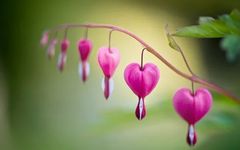
Zhang Zhongjing was not only a great clinical physician but also a health preservation expert deeply influenced by the principles of the Neijing. Under the theoretical guidance of preserving vital energy and preventing diseases, he utilized methods such as herbal therapy, dietary therapy, physical therapy, and acupuncture to strengthen the body and expel pathogens, promoting recovery and playing a significant guiding role in the development of TCM health preservation.Preventing Minor Issues and Treating Diseases Before They OccurZhang Zhongjing criticized in the preface of the Shanghan Lun those who neglect body care, stating they are “adorned on the outside but neglecting the essence, embellishing the exterior while withering the interior. If the skin does not exist, where will the hair attach?” Regarding health preservation, he emphasized the importance of “treating diseases before they occur.” In the opening sentence of the Jinkui Yaolue, he directly stated, “The superior physician treats diseases before they occur; why is this?” He then illustrated the method of disease prevention using the example of “seeing liver disease, knowing the liver transmits to the spleen, one should first strengthen the spleen.”1. Humans Live in Nature and are Governed by It.Humans can either actively adapt to the changes of nature or passively accept its constraints, leading to vastly different outcomes. Zhang Zhongjing believed that human agency should dominate. He vividly stated, “Humans are endowed with the five constants, growing and thriving according to the climate; although the climate can nurture all things, it can also harm them, just as water can float a boat or capsize it.” How can one navigate freely like a light boat on water? He said, “If the five organs’ vital essence flows smoothly, the person will be peaceful and harmonious.” This aligns with the Neijing principle that “when the righteous qi is preserved within, evil cannot invade.”2. The Key to Maintaining Physical and Mental Health or Preventing Disease Deterioration Lies in “Nurturing Caution.” “Nurturing caution” refers to internally nurturing righteous qi and externally warding off pathogenic factors. He stated, “If a person can nurture caution, not allowing evil winds to disturb the meridians, adjusting the meridians, and treating them before they affect the organs; when the limbs feel heavy and stagnant, one should practice guiding and breathing exercises, acupuncture, and massage, not allowing the nine orifices to become blocked; furthermore, one should not violate the laws of nature, avoid harm from beasts, and ensure the living environment is not depleted, moderating the temperature of food and drink, avoiding extremes of bitter, sour, spicy, and sweet, so that the body does not suffer decline, thus preventing disease from entering the pores.” This passage reflects Zhang Zhongjing’s health preservation philosophy that emphasizes prevention over treatment. The terms “not allowing,” “adjusting… and treating,” and “feeling… and guiding” all contain the proactive significance of early prevention and treatment.3. It is Not Accidental that Zhang Zhongjing Places “Guiding and Breathing Exercises” at the Forefront.Guiding refers to a medical exercise method characterized by bodily movement, self-massage, and stretching of limbs. Breathing exercises, as mentioned in the Zhuangzi, refer to “exhaling the old and inhaling the new,” which is essentially a method of adjusting breathing for health preservation and disease prevention, similar to modern qigong. “Guiding and breathing exercises” serve as exercises for disease prevention and anti-aging, being simple and effective, thus widely accepted. From a modern medical perspective, these exercises primarily stimulate peripheral nerves, promote blood and lymph circulation, and enhance metabolic processes in tissues, ultimately improving overall function.Additionally, Zhang Zhongjing adeptly used acupuncture to prevent the transmission of diseases. For example, when a patient with a Taiyang disease “wants to reoccur, needling the foot Yangming will prevent the transmission and thus cure it.” Similarly, when a Taiyang disease does not resolve, “first needle Fengchi and Fengfu, then administer Guizhi Decoction to cure it.” Today, we commonly use acupuncture at Fengchi and Fengfu points to prevent and treat colds, likely related to Zhang Zhongjing’s experiences.Postnatal Nourishment to Preserve Vital EnergyZhang Zhongjing placed great importance on the therapeutic effects of food. His formulas often included various food medicines such as ginger, jujube, wheat, barley, japonica rice, coix seed, red bean, egg yolk, yam, lily, honey, maltose, mutton, and wine. These foods have varying degrees of nourishing effects on the five organs, particularly in regulating the spleen and stomach. However, dietary intake must be moderated, and attention should be paid to hygiene, compatibility, and contraindications. Zhang Zhongjing pointed out, “All flavors of food should nourish life. If food is harmful, it can cause harm.” “The flavors of food should be compatible with the disease and not harm the body; if suitable, it benefits the body, if harmful, it leads to illness.” In the Jinkui Yaolue, he compiled experiences regarding the consumption of animals, fish, fruits, vegetables, and dietary prohibitions. For instance, excessive alcohol consumption can lead to “alcoholic jaundice,” and “improper cooking” can cause food stagnation. Generally, “stale rice, spoiled meat, and smelly fish,” “animals that died naturally,” “fruits that fell to the ground overnight,” and “frost-damaged tea” should not be consumed.Moreover, Zhang Zhongjing’s dietary prohibitions after taking medicine have been revered by later physicians. For example, he advised against consuming cold, sticky, meaty, pungent, alcoholic, and foul substances after taking Guizhi Decoction. These foods can harm the vital energy of the middle jiao (spleen and stomach). Later, the spleen and stomach expert Li Dongyuan absorbed Zhang Zhongjing’s experiences, excelling in tonifying the spleen and stomach qi, and in the Piwei Lun, he dedicated sections to “Spleen and Stomach Regulation” and “Nourishment,” further elaborating on dietary health preservation methods.In the Shanghan Lun, Zhang Zhongjing established treatment protocols for post-illness recovery, which set standards for consolidating treatment effects after febrile diseases, preventing recurrence, and restoring the stomach. The herbal treatments can be summarized as: Zhishi Zhi Zi Chi Decoction for regulating the stomach and clearing heat, Xiao Chai Hu Decoction for resolving heat and harmonizing the stomach, Li Zhong Wan for warming the middle and strengthening the spleen, Muli Zexie San for promoting water metabolism and relieving spleen and kidney distress, and Zhuye Shigao Tang for generating fluids and nourishing the stomach while clearing heat. Later generations expanded these methods to treat internal injuries and miscellaneous diseases, often achieving effects of tonifying the spleen and stomach, supporting vital energy, and generating body fluids, leading to self-healing of diseases.Enhancing Yin and Assisting Yang to Combat AgingEmphasizing the balance of Yin and Yang in internal and external environments is a fundamental thought in the Neijing health preservation philosophy. Zhang Zhongjing left us with numerous formulas for harmonizing Yin and Yang and combating aging, such as Shenqi Wan, which appears multiple times in the Jinkui Yaolue, possessing the function of nourishing Yin and assisting Yang. The deficiency of Yin can generate Qi, and the weakness of Yang can generate water; when the kidney qi is invigorated and the transformation is restored, diseases can be eliminated, and aging can be reversed. The later formula Liuyue Dihuang Wan was derived from Shenqi Wan.Experimental research and clinical practice have proven that Shenqi Wan can enhance the body’s resistance to diseases, increase blood circulation, improve kidney function, protect the liver, lower blood pressure, reduce blood lipids, strengthen the heart, and promote diuresis. It is also used to treat common diseases in the elderly, such as hypertension, diabetes, benign prostatic hyperplasia, nephritis, and heart disease. Another example is Shanyao Wan, which is used to treat “deficiencies and various ailments caused by wind and qi.” Yue Meizhong found it “very suitable for the elderly, as they often experience discomfort, dizziness, limb pain, and numbness due to qi and blood deficiency.” He believed this formula balances movement and nourishment, does not lean towards Yin or Yang, Qi or Blood, is neither cold nor hot, does not purge or drain, and regulates the spleen and stomach, nourishing both Qi and Blood, treating both internally and externally, allowing “Yin to be balanced and Yang to be secreted, thus the spirit is treated.”Later generations also promoted Xiao Jian Zhong Tang and Fu Mai Tang (i.e., Zhi Gan Cao Tang) from the Shanghan Lun as the ancestors of regulating Yang Qi and preserving Yin fluids. Xiao Jian Zhong Tang is a primary formula for tonifying Qi, enhancing respiratory, circulatory, and digestive functions, and is widely used for various debility-related diseases. Fu Mai Tang is a primary formula for tonifying Qi and restoring the pulse, improving blood circulation, promoting metabolism, correcting anemia, and stimulating the central nervous system, particularly effective for heart diseases. The Clinical Guidelines for Medical Cases states, “To regulate Yang Qi, one should promote Jian Zhong, and to preserve Yin fluids, one must use Fu Mai.” This is indeed a profound truth.

— THE END —
⊙This article is reproduced from the internet for reference only, copyright belongs to the original author. If there are any objections, please inform us for timely deletion.
⊙For all prescriptions or therapies mentioned in this article, please consult a physician and do not use them blindly. This platform does not bear any responsibility for any consequences!
Recommended Courses
Ni Haixia lectures on the Huangdi Neijing (80 episodes in total) and Hao Wanshan lectures on the Shanghan Lun (70 episodes in total) and the Jingpai (painless) method for treating woolen furunculosis.

